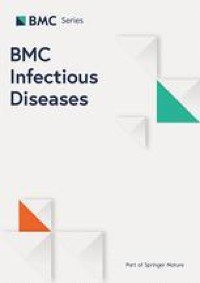Pelvic floor function after third- and fourth-degree perineal tears: a case-control study on quality of life | BMC Women’s Health

This study demonstrates that the PFDI-20 is a valid and useful tool to analyze pelvic floor dysfunction in the postpartum population through quality of life assessment. Perineal tears are a common phenomenon after vaginal delivery, with an incidence of 53-85%, highly dependent on patient characteristics, labor movements, and obstetric assistance during delivery. [13]. Our case […]
Mean platelet volume and total white blood cells as diagnostic biomarkers of acute appendicitis in Omdurman Military Hospital: a cross-sectional study – 2021 | BMC Gastroenterology Department

AA is the most common indication for emergency abdominal surgery worldwide, with a lifetime incidence of 7% [10]. It can occur at any age, with peak incidence in the mid-20s. AA is one of the most common surgical emergencies, but its exact cause is still unknown [11], And accurate diagnostic tools have not yet been […]
Comparison of available C-type partial stapled hemorrhoidopexy (C-PSH) and circular stapled hemorrhoidopexy (CSH) in patients with grade IV hemorrhoids: a retrospective cohort study | BMC Gastroenterology

In this study, long-term results showed that the hemorrhoid recurrence rates in the C-PSH and CSH groups were similar, and constipation was an independent prognostic factor for recurrence. The C-PSH group had the advantage of reduced fecal urgency, pain during the first bowel movement after surgery, and major complications. However, in the C-PSH group, the […]
Applied anatomy of the female pelvic plexus for nerve-sparing radical hysterectomy (NSRH) | BMC Women’s Health

Kaythampillai LN, Jakiel M, Urbaniak J, Bereza T, Kowalski W, Loukas M. WalochaJ: Pelvic autonomic nervous system – an overview. Folia med Krakow. 2018;58(2):21–44. Google Scholar Seracchioli R, Mabrouk M, Mastronardi M, Raimondo R, Arena A, Simona DF, Mariani GA, Billi AM, Manzoli L. Michael O’Guin, Lemos N: Anatomical mapping of the hypogastric nerve and […]
Eubiotic effects of rifaximin are associated with reduced abdominal pain in symptomatic uncomplicated diverticular disease: results of an observational cohort study | BMC Gastroenterology

To our knowledge, this study is the first to evaluate the long-term (i.e., 6 months) effects of rifaximin on the gut microbiota of SUDD patients. Here we show that rifaximin significantly reduced the severity of abdominal pain, which is consistent with previous studies. [9,10,11,12]. Treatment with rifaximin over 6 months was not associated with significant […]
Effect of Trolox on anal sphincterotomy repair in rabbits | BMC Gastroenterology

Regreos SR, Mangil N, Bissoli J, Osman NI, Block AJ, Chapple CR, McNeil. S. Biomimetic design of autologous cell-seeded scaffolds for pelvic floor repair. eurourol supplement. 2014;13:e486. article Google Scholar Uustal Fornell E, Wingren G, Kjolhede P. Factors associated with pelvic floor dysfunction with emphasis on urinary incontinence, fecal incontinence and genital prolapse: an epidemiological […]
Spanish version of the ICIQ Bowel Questionnaire for patients with colorectal cancer: construct and criterion validity | BMC Gastroenterology

COSMIN terminology and reporting guidelines were used in this cross-sectional validation study. [15]. All participants provided written informed consent and the study was approved by the Ethics Committee of Oriente Services Metropolitano. [approval on 28th May 2019], Santiago de Chile. Questionnaire results were collected on paper by her four previously trained physical therapists, and patients […]
Three-dimensional pelvic ultrasound is a practical tool for the evaluation of anal fistulas. BMC Gastroenterology

The most basic treatment for anal fistula is surgery. However, the high recurrence rate of anal fistulas is a common problem, especially in recurrent and complex anal fistulas. For effective surgical management, prior knowledge of the site of the fistula, the main types of perianal fistulas, and the anatomy of the internal orifice is essential […]
PTEN-induced kinase 1 gene single nucleotide variant as a biomarker in adjuvant chemotherapy for colorectal cancer: a retrospective study | BMC Gastroenterology

tissue sample A total of 84 analytical samples were collected from surgical or biopsy specimens from 84 patients who underwent radical surgery for colorectal cancer at Saitama Medical University International Medical Center from January to December 2016. One case was excluded because the sample was too small. Therefore, we used metastatic lymph nodes instead of […]
Postinfectious functional gastrointestinal disorders associated with coronavirus infection-19: a prospective follow-up cohort study | BMC infection

research design This prospective cohort study was conducted in adults from July 2022 to February 2023. At the time of the research, China was strict against the new coronavirus infection, which is controlled by Omicron. [14, 15]is a variant of SARS-CoV-2, and all people underwent population-wide coronavirus screening with routine universal reverse transcription-polymerase chain reaction […]
